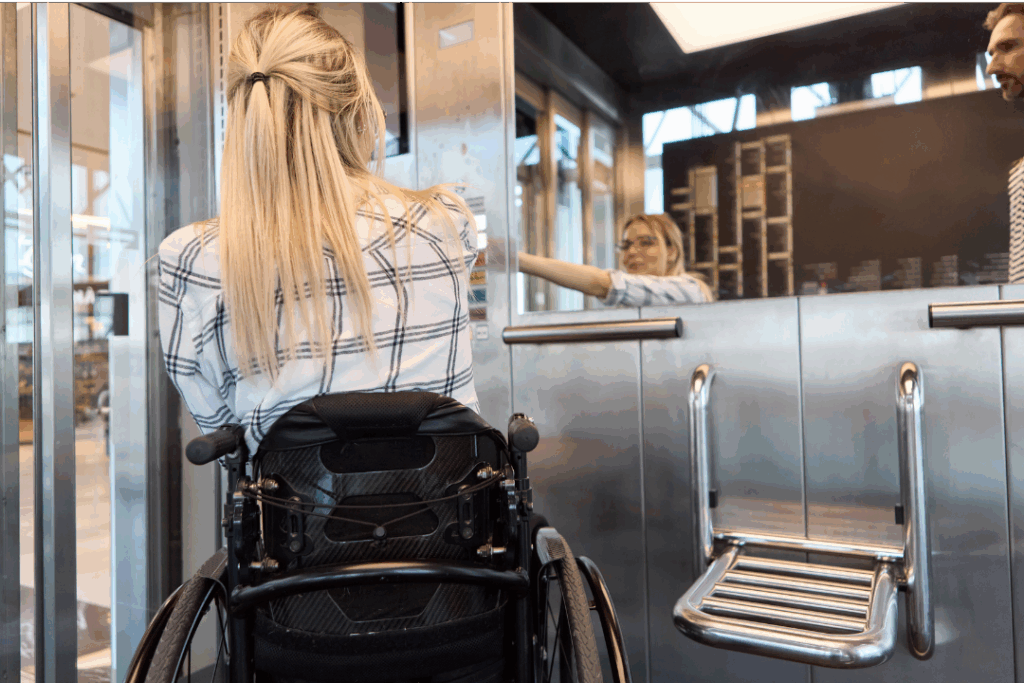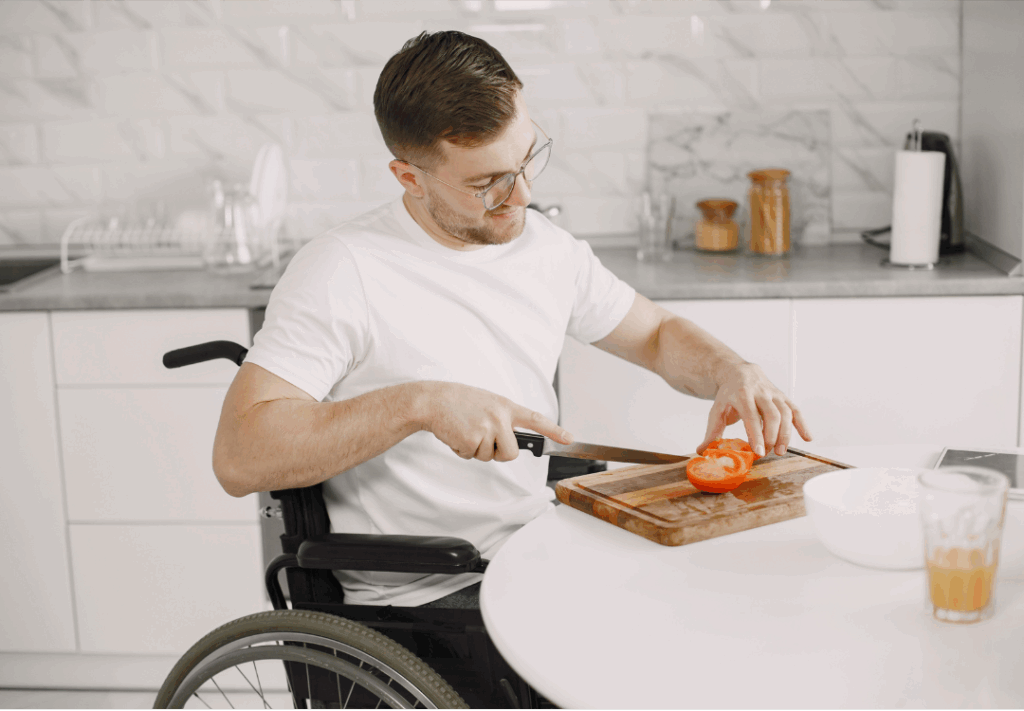As we know, all spinal cord injuries are not the same, and abilities for each person vary with each level of injury. Therefore, it makes sense that different levels of assistance are also needed to determine where we need to learn how to adapt. And those adaptations are the skills we learn to carry out our daily lives and functions. Activities of Daily Living (ADLs) are the skills we learn and need to develop to enhance our lives and position ourselves for greater independence.
ADLs can include but are not limited to eating, drinking, toileting, bathing, dressing and transferring. Skills we must work on after our injury often include balance, strength, endurance, and understanding our abilities and limitations. But ADLs are not usually personal activities, as mentioned. These can include domestic tasks, leisure activities, shopping, managing finances, and monitoring medications.

So, we asked some of our members who have adjusted to this ever-changing lifestyle how they have complemented and enhanced those abilities to make their lives more independent.
Don Johnston uses a cup holder connected to his wheelchair to carry liquids, a pouch underneath his seat to hold small items like a wallet or gloves, and always a book bag for larger items or extra supplies. Grabbers are inexpensive, and he has placed several of those in different locations around his home. With life as an aging spinal cord injury, they come in quite handy.
Elizabeth Shank, from the northeast part of Ohio, uses push gloves to help protect her hands while also providing added force and grip to propel her manual chair. She also uses a push assist device that hooks onto the back of her chair, providing an assist when needed, such as when she goes to the grocery store to shop for her family or attends a concert or local fair. At her bedside for convenience, she uses a three-drawer nightstand that holds most of what she needs medically. Other modifications she has made to her home include a pedestal sink in her bathroom, allowing her to roll up close, a stair glide to access the basement, and a new ramp with handrails for added safety. After undergoing some surgeries, balance has become an issue for her. Although she had physical therapy to help her learn new ways to move, she now uses armrests on her chair, which offer her new ways of maintaining balance and support.

Dave Kohl, like so many others, uses his bed for balance and exercises. Maintaining a healthy and flexible body is important, so his routines include exercises such as morning yoga, meditation, and stretching. He works out with stretch bands and hand weights every other day and lives in a ranch home to make his daily life more convenient. He enjoys watching cooking shows and experimenting with new and different recipes from them. His bathroom features a roll-in shower, providing him with significant independence, as well as under-counter access to his sink. He works part-time for a business he had before his injury, which keeps him busy. To fill his day, he enjoys repairing things around the house and has taken up gardening.
Don Renninger includes thoughts of self-esteem, rehab, and independence. Much of his success stems from his close collaboration with MetroHealth’s physical therapy and occupational therapy staff. As a recent spinal cord injury, he focused on learning how to care for his personal needs, especially bowel and bladder management, bathing, and dressing on my own. These were a priority for him to learn. Adapted commodes, shower chairs, and ramps were all new items he uses to maintain his independence as much as possible. He lowered his bed to make the transfer easier for him as well. Its height now is the same as my wheelchair seat. He also installed a grab bar next to his bed to help him sit up, and it has proven quite helpful. Adaptations to his bathroom included removing the carpet to make rolling easier and creating cabinet cutouts to roll his wheelchair underneath. Like many others, he uses grabbers in many of his rooms to reach for items that are too difficult to maneuver. He is also driving again after installing hand controls. Independence is coming full circle. While in therapy, balance became a focus as part of his rehab. He learned how to pick items up from the ground while holding onto his wheel. Before, he was afraid to reach for anything for fear of falling to the ground. They have adapted the kitchen area so that he can help in any way he can with clean-up, but sometimes it still gets so frustrating. He’s figuring out how to play sports with his kids again. It’s sometimes hard for them to understand his new limitations, but they are figuring out this battle together.

Will Baker’s focus is on balance. One of the first things he learned was to ride a wheelie in his chair, which he feels gives him a greater opportunity to move about. Riding through the grass is so much easier in a wheelie. He can now hop down a curb rather than search for a ramp cut-out if needed. To increase his home access, he had installed ramps and an elevator lift. He enjoys using various adaptive mechanical devices, such as grab bars, long grabbers for picking up items, and hand controls for driving. Balance is a tricky yet essential skill for wheelchair users to master. Always take your time, especially at the beginning, to make sure you are as safe as possible.
These have been just a few examples of ADLs from members of our disability community. Making life easier and more convenient for us and our families comes from trial and error, but in the long run, the problem-solving techniques can be applied by almost everyone. Once we have decided on a course of action for ourselves, we can use the ideas and successes of others to accomplish these goals.
